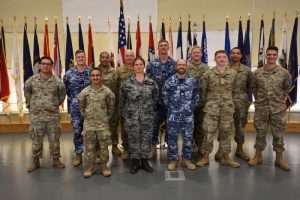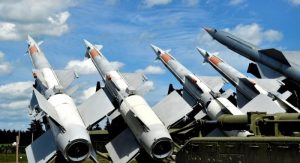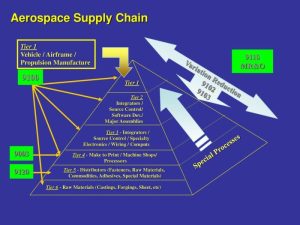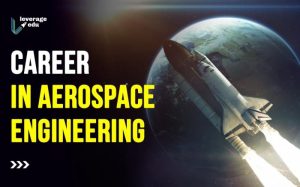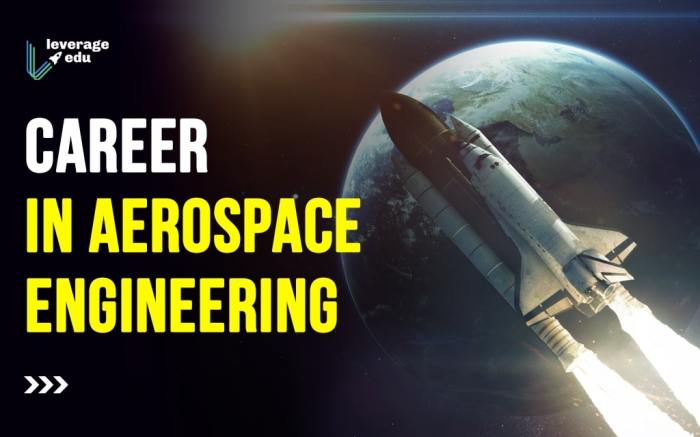
Aerospace engineering careers sets the stage for this enthralling narrative, offering readers a glimpse into a story that is rich in detail with entertaining interactive style and brimming with originality from the outset.
Get ready to explore the high-flying world of aerospace engineering careers, where innovation meets the skies and endless possibilities await those with a passion for all things aviation and space.
Overview of Aerospace Engineering Careers
Aerospace engineers play a crucial role in the aviation and aerospace industry, designing and developing aircraft, spacecraft, satellites, and missiles. They are responsible for creating innovative technologies that push the boundaries of flight and exploration.To pursue a career in aerospace engineering, individuals need a strong background in math, physics, and engineering principles. A bachelor’s degree in aerospace engineering or a related field is typically required, with many professionals obtaining advanced degrees for higher-level positions.
Different Sectors in Aerospace Engineering
- Commercial Aviation: Aerospace engineers work for airline companies, designing and testing commercial aircraft to ensure safety and efficiency.
- Military and Defense: Professionals in this sector develop military aircraft, missiles, and defense systems to support national security.
- Space Exploration: Aerospace engineers in this field design spacecraft and satellites for missions to explore outer space, including manned missions to other planets.
- Aerospace Research and Development: Engineers in research and development focus on creating new technologies and improving existing aerospace systems for future advancements.
Job Opportunities in Aerospace Engineering

Aerospace engineering offers a wide range of job opportunities for professionals looking to work in the field of aviation and space exploration. Let’s explore some of the key job positions available in this exciting industry.
Aerospace Engineer
Aerospace engineers are responsible for designing, testing, and overseeing the production of aircraft, spacecraft, satellites, and missiles. They work on various components such as propulsion systems, materials, and aerodynamics to ensure the safety and efficiency of aerospace vehicles. Aerospace engineers can specialize in areas such as avionics, propulsion systems, or structures.
Aircraft Design Engineer
Aircraft design engineers focus specifically on the conceptualization and development of new aircraft models. They work on creating aerodynamic designs, structural layouts, and systems integration to meet performance requirements and safety standards. Aircraft design engineers collaborate closely with aerospace engineers to bring their designs to life.
Flight Test Engineer
Flight test engineers are responsible for planning and conducting tests on aircraft and spacecraft to evaluate their performance and safety. They analyze data from test flights, identify potential issues, and make recommendations for improvements. Flight test engineers play a crucial role in ensuring the airworthiness of aerospace vehicles.
Companies Hiring Aerospace Engineers
- NASA (National Aeronautics and Space Administration)
- Boeing
- Lockheed Martin
- SpaceX
- Airbus
- Northrop Grumman
These are just a few examples of companies and organizations that hire aerospace engineers. With the growing demand for advanced aerospace technologies, there are plenty of opportunities for skilled professionals to make their mark in this dynamic industry.
Education and Training for Aerospace Engineering Careers
To pursue a career in aerospace engineering, individuals typically follow a specific academic path that includes earning a bachelor’s degree in aerospace engineering or a related field. This serves as the foundation for developing the necessary skills and knowledge to work in the aerospace industry.
Academic Path to Becoming an Aerospace Engineer
- Begin by obtaining a bachelor’s degree in aerospace engineering or a related field such as mechanical engineering, electrical engineering, or physics.
- Consider pursuing a master’s or doctoral degree for advanced specialization and career advancement opportunities.
- Participate in research projects, design competitions, and extracurricular activities related to aerospace engineering to enhance practical skills.
Importance of Internships or Co-op Programs
Internships or cooperative education programs play a crucial role in the development of aspiring aerospace engineers. These opportunities provide hands-on experience, exposure to real-world projects, and networking opportunities within the industry. They allow students to apply theoretical knowledge in practical settings and gain valuable insights into the day-to-day operations of aerospace engineering.
Role of Certifications or Advanced Degrees
Certifications in specialized areas of aerospace engineering can demonstrate expertise and enhance career prospects. Additionally, pursuing advanced degrees such as a Master of Science or Ph.D. can lead to research positions, higher-paying roles, and leadership opportunities within the field. Continuous learning and professional development through certifications and advanced degrees are essential for staying competitive in the ever-evolving aerospace industry.
Advancements and Innovations in Aerospace Engineering
Recent technological advancements in the aerospace industry have revolutionized the way we travel and explore outer space. Aerospace engineers play a crucial role in pushing the boundaries of innovation and design in this field, constantly seeking new solutions to complex challenges.
Electric Propulsion Systems
Electric propulsion systems have emerged as a game-changer in the aerospace industry, offering increased efficiency and reduced environmental impact compared to traditional propulsion systems. These systems utilize electric power to generate thrust, paving the way for more sustainable space travel.
Additive Manufacturing
Additive manufacturing, also known as 3D printing, has transformed the way aerospace components are designed and produced. This technology allows for the creation of complex geometries and lightweight structures that were previously impossible to manufacture, leading to more efficient and cost-effective aerospace systems.
Autonomous Systems
Advancements in autonomous systems have enabled the development of unmanned aerial vehicles (UAVs) and autonomous spacecraft that can perform tasks without human intervention. Aerospace engineers are at the forefront of designing and optimizing these systems for a wide range of applications, from surveillance to exploration missions.
Future Trends in Aerospace Engineering
Looking ahead, the future of aerospace engineering is likely to be shaped by advancements in artificial intelligence, space tourism, and sustainable propulsion technologies. Aerospace engineers will continue to push the boundaries of innovation, making space travel more accessible and environmentally friendly.
Weight Management Clinic Business Services

A weight management clinic is a specialized facility that offers services to help individuals achieve and maintain a healthy weight. These clinics provide personalized weight management plans tailored to each client’s specific needs and goals.
Importance of Personalized Weight Management Plans
Personalized weight management plans are crucial for clients as they take into account factors such as medical history, lifestyle, dietary preferences, and fitness levels. These plans are designed to be sustainable and effective, ensuring long-term success in managing weight.
Role of Nutritionists, Dietitians, and Fitness Experts
- Nutritionists: Nutritionists in weight management clinics create balanced meal plans that meet the client’s nutritional needs while promoting weight loss or maintenance.
- Dietitians: Dietitians provide evidence-based advice on diet and nutrition, helping clients make healthy food choices and develop better eating habits.
- Fitness Experts: Fitness experts design individualized exercise programs that complement the client’s weight management plan, focusing on increasing physical activity and overall fitness.
Aerospace and Defense Industry
The aerospace and defense industry plays a crucial role in national security and technological advancements. Aerospace engineering is closely linked to the defense sector, contributing to the development of military aircraft, spacecraft, and defense systems.
Projects and Initiatives
In the aerospace and defense industry, there are various key projects and initiatives that drive innovation and enhance defense capabilities. Some notable examples include:
- Development of stealth technology for military aircraft to reduce radar detection and enhance operational secrecy.
- Advancements in missile defense systems to protect against potential threats and ensure national security.
- Collaborative efforts between aerospace engineers and defense experts to create unmanned aerial vehicles (drones) for surveillance and reconnaissance missions.
Impact on National Security
Aerospace technologies have a significant impact on national security and defense systems by providing advanced capabilities to protect borders, monitor threats, and ensure the safety of citizens. These technologies enable countries to stay ahead in defense strategies and deter potential adversaries.
Aerospace engineering innovations have revolutionized the way nations approach defense, with cutting-edge technologies shaping the future of military operations.
Closure
As we reach the end of this exhilarating journey through aerospace engineering careers, it’s clear that the sky is not the limit for those who dare to dream big and reach for the stars in this dynamic and ever-evolving field.
FAQ
What are the key responsibilities of aerospace engineers?
Aerospace engineers design aircraft, spacecraft, satellites, and missiles, test prototypes to ensure they function according to design, and oversee the manufacture of these products.
What qualifications do I need for a career in aerospace engineering?
Typically, a bachelor’s degree in aerospace engineering or a related field is required. Strong analytical, math, and problem-solving skills are essential.
How do internships benefit aspiring aerospace engineers?
Internships provide hands-on experience, networking opportunities, and a chance to apply classroom knowledge to real-world projects, enhancing career prospects.
What advancements can we expect in the future of aerospace engineering?
The future of aerospace engineering holds promises of advanced propulsion systems, space tourism, unmanned aerial vehicles, and sustainable aviation technologies.
